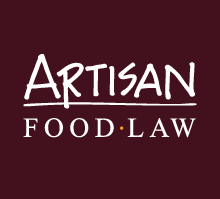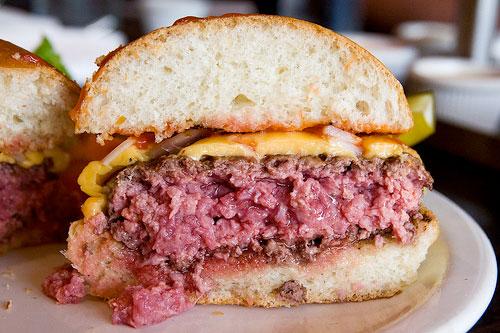Westminster City Council gets tough on rare burgers
May be that headline should have read: Westminster insists burgers must be indigestibly tough or incinerated prior to consumption?
Over the last few weeks Westminster City Council has come in for a lot of stick for a reported crack down by environmental health officers on sales of medium rare and rare burgers. This followed earlier reports about Westminster’s action in requiring the Brasserie Blanc in Covent Garden to cook calves’ liver at a core temperature of 70 degrees centigrade for two minutes. In other words rendering the liver inedible. Sadly, but understandably, Raymond Blanc’s response was not to contest Westminster’s action but to remove liver from the menu of all Brasserie Blanc restaurants rather than overcook it to the dissatisfaction of his customers.
The media storm built up apace with numerous reports that Westminster had turned its attention to the humble beef burger. The Evening Standard was first to report on Westminster’s health and safety madness. The story was quickly picked up by numerous other newspapers with the Daily Telegraph posing the question: Is this the end of the rare burger? The Independent meanwhile focussed on the anger and confusion surrounding the issue.
The ensuing furore resulted in a press statement from Westminster published on 14 December last. Westminster was not, as reported, “banning the sale of rare burgers” but making sure businesses “do not put their customers at risk from bacteria in un(der)cooked meat” or what I for one are more likely to call perfectly cooked meat! In fairness to Westminster their advice is quoted in full below:
“In the case of rare burgers, the food handling controls involve cooking the burger to achieve pasteurisation – this involves a time/temperature combination. One such time/temperature is (core) 70 [degrees centigrade] for a full 2 mins. Alternatives involve either higher temperatures for shorter times or lower temperatures for longer times. We have worked with local businesses who have managed to achieve correct pasteurisation combinations which result in a burger that is still somewhat pink in the middle. There is also an alternative method dubbed ‘ sear and shave’ which involves taking a whole piece of meat, searing it to kill external contamination and then shaving off the cooked edges – effectively killing any bacterial contamination. The meat can then be minced (hygienically) and served raw (as in steak tartare) or to any degree of cooked – for example rare or medium.”
So Westminster simply insists that meat be ‘pasteurised’, not something I normally associate with meat, with the result that it is ‘somewhat’ pink in the middle. Sounds medium rare to me at best and I guess taste and texture simply do not enter into the equation. Yes, you can have rare burgers, so long as they are cooked at a core temperature of 70 degrees centigrade for two minutes. Where’s the rare in that? The re-definition of Steak Tartare simply defies rational comment.
While Westminster may well have been following the Food Standards Agency's (FSA) guidance on cooking meat, the FSA is well out of step with standards applied elsewhere in Europe in the implementation of the very same food hygiene regulations. Famously, France has its Steak Tartare, the Netherlands has Ossenworst (a raw sausage), Germany has Mett (raw minced pork spread) to name but a few, while Italy makes a speciality of raw meat, best known is Carpaccio di Manzo (beef), but also Battuta di Manzo (chopped raw beef) and other raw meat dishes which are commonly served in local restaurants where they are much sought after and appreciated by diners.
Clearly, the FSA and its counterpart in Italy may both have got their interpretation of food hygiene regulations wrong, but they cannot both be right and Italy appears to have the support of France, The Netherlands, Germany and quite possibly the rest of Europe.
A debate on the merits of how meat should be cooked is for another day, for now it matters not whether raw, blue, rare, medium or well done, but surely it should be your choice and not that of a paid official?
It is widely accepted that there is a disconnect between people and the source of what they consume. There is also clearly a disconnect between professionals charged with responsibility for food law enforcement and any appreciation of the social and cultural context in which food plays such an important role. Law cannot be made or enforced in a vacuum, this doesn't happen in any other sphere so why is the FSA allowed to do so when it comes to food law? Why cannot Westminster exercise independence of mind and judgement?
There is some hope that clarity and common sense may prevail. Davy’s Winebars has taken a stand in challenging Westminster in the courts over the approach it has taken. There will be a lot of restaurants in London and elsewhere with a keen interest in the outcome, but we must wait to see what the New Year brings here.
Me? Give me a bloody burger any day! Although there is also a bigger issue at stake here. We must all, especially if we are to consume raw meats, acknowledge our responsibility to know about the source of our food and appreciate that the shorter the distance between the farm and our plate, the greater the trust and integrity there can be in our food system.
This post was updated on 3 November 2013 with information concerning the availability of raw meat products and dishes in several other EU countries.





